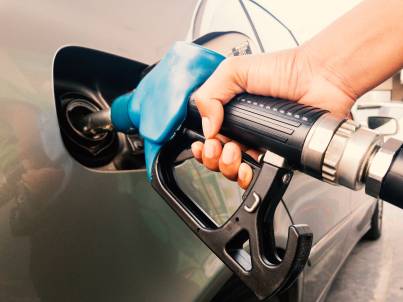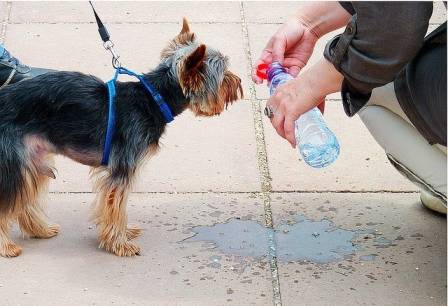Connect with a verified veterinarian in minutes. Licensed vets are available 24/7 to answer your questions. No need to worry about your furry family member.
Gasoline is fairly common in many of our homes. If you have one or more cars (with combustion engines), then you must use gasoline. Gasoline is also common for other types of machines, including lawnmowers, leaf blowers, and more. With gas so prevalent, even in our homes, it’s entirely possible for a dog to come into contact with gasoline. But what happens if a dog drinks gasoline?
Has your dog drunk gasoline? Are you worried the gasoline will make your dog sick? If so, then you’ve come to the right place. We understand it can be scary when your dog drinks something like this.
We’ve put together some information about gasoline in this article and whether it can make a dog sick. Let’s get started!
What is Gasoline?
Gasoline is a fossil fuel that’s made from crude oil and other petroleum products. This liquid fuel is most often used in vehicles that have combustion engines, such as cars, trucks, and more. Gas is also used in other machines that have engines, including lawnmowers, edge trimmers, and more.
Gasoline is commonly found in homes, businesses, and more. In addition, you may have a container of gas in the garage, in the shed, or workshop. It’s in these places that dogs usually come into contact with the gas.
But what happens when a dog drinks gasoline?
Gasoline & Dogs
Gasoline can be inhaled (vapors), have contact with the skin, or be ingested. Each of these methods into the body can lead to toxicity in dogs. For example, a dog may become curious about a liquid, such as gas that’s accidentally spilled on the garage floor. He may first sniff the liquid and then drink some. It’s also possible for a dog to simply walk through the gas and then lick the liquid off his paws.
Some dogs may even become curious about an open container of gas and drink some. No matter the method of contact the dog has with the fossil fuel, it’s possible he may be poisoned.

Review symptoms, medications & behavior to keep your pets healthy with a Vet Online in just minutes.
Ask a Vet Live NowSymptoms of Gasoline Ingestion in Dogs
You may notice these symptoms if your dog has ingested gasoline:
- Coughing
- Gagging
- Difficulty breathing
- Rapid breathing
- Ulcers in the mouth
- Excessive drooling
- Shaking his head/pawing at his face or mouth
- Loss of appetite
- Vomiting
- Diarrhea
- Abdominal pain
- And more
If your dog shows any of these symptoms, then call the vet immediately. This is an emergency.
It is imperative not to wait to see if your dog’s symptoms improve or worsen. That’s because gasoline toxicity can lead to death if left untreated.
The prognosis is best for dogs who receive fast medical treatment after ingesting gasoline.
Connect with a verified veterinarian in minutes. Licensed vets are available 24/7 to answer your questions. No need to worry about your furry family member.

Julie
Julie is a graduate of the University of North Carolina, Wilmington, where she studied Animal science. Though contrary to the opinion of her parents she was meant to study pharmacy, but she was in love with animals especially cats. Julie currently works in an animal research institute (NGO) in California and loves spending quality time with her little cat. She has the passion for making research about animals, how they survive, their way of life among others and publishes it. Julie is also happily married with two kids.
Review symptoms, medications & behavior to keep your pets healthy with a Vet Online in just minutes.
Ask a Vet Live Now




